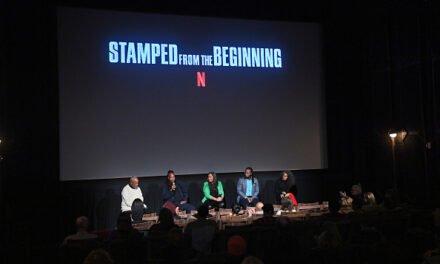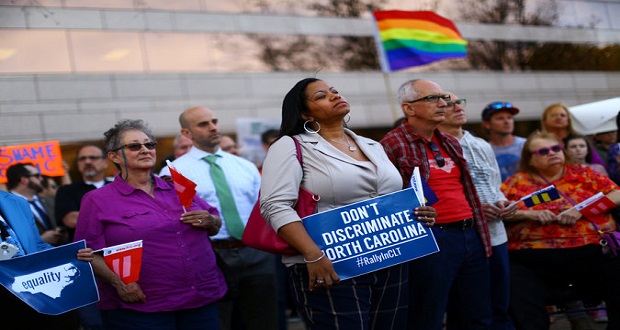Our names are sacred. They are part of our identities and are our connection to our culture, our family and our ancestors. In many cultures, names have honorable meanings and stories behind them. Cultural denigration is the diminishing of a culture that is perceived as inferior to the dominant culture, and it is one component of systemic racism.
If any parts of your name — or worse, your full name — does not have Anglo–Saxon roots, you have likely been asked how to pronounce your name hundreds or thousands of times in your lifetime by white folks. It becomes a dreaded experience. Perhaps you have repeatedly been asked by the same white people over a period of several weeks, months or years. Finally, they usually give up and say, “Sorry. I am bad with names. I am just going to call you _____” (insert an initial or shortened nickname that they gave you because it’s easy for them to say, typically without asking if this was okay with you). The white folks who are honest with themselves and us will simply stare blankly at your name on paper and not even attempt any sort of effort asking, “Do you have a nickname I can call you?”
Throughout most of my life, “May Ann Medallada” was the name that teachers had on their student lists for recording daily attendance, the name that medical professionals used to call for me in their waiting rooms, and the name that was on my social security card and government identification when I applied for jobs.
“May Ann” is a popular first name in the Philippines. If you do a quick search on any social media platform, you will see there are hundreds (or thousands) of Filipino May Anns. The name May and the name Ann are not particularly difficult for white Americans to pronounce and both names have a history of being used as baby names in America… but for some reason, most white folks in American classrooms and workplaces have trouble with the name May Ann. They often make the misassumption that there was a typo, and that May Ann is supposed to be Mary Ann. For every person who correctly pronounced May Ann in my life, there were nine teachers, medical professionals, or job recruiters who pronounced my name as Mary Ann.
It became so frustrating that by the time I was in high school, I dropped the Ann and decided to just be called May, because it seemed impossible for people to mispronounce May. Guess what happened? People still insisted upon calling me Mary in-person and in email communications. I do not know which irritates me more, but I simply cannot understand how they can see my name May on the screen in multiple places (my email address, my email name and my email signature), yet still call me Mary. They claim spellcheck made the correction, but I do not believe it. May is the fifth month of the year. Also, as someone who lives with the name May, I have never received a spell check error for my own name.
Do not get me started on the experience with my Filipino last name, Medallada. People add or remove letters to make it easier for them to say—Magdelena, Magdallada, Mandolin, Medula and Medalla are some of the ways people have mispronounced my last name. It is interesting to me because if they even tried to sound my name out based on the spelling, it would come close to the actual pronunciation. Medal-lada is how one could sound it out. The correct pronunciation is Medal-ya-da.
No matter how many times I repeat my last name or phonetically spell it for white folks: Medal-ya-da. Medal-ya-da. Medal-ya-da. You know? It is like the word medal, then yada, like yada, yada, yada. Medal-ya-da. Yet they continue to add or remove letters. When I got married, I married into the Robinson family, so I immediately changed my name to May Robinson because Robinson is the last name of some white folks. They would never have trouble with their own last name. While I continue to be addressed as Mary, I no longer had to spend five to 10 minutes trying to teach white folks how to properly say Medallada, only for them to give up or continue to butcher my name.
After a few years of living my professional life as May Robinson, I came to an important conclusion: I lost a significant piece of my identity, an identity I did not want to part with. While I changed my name socially and professionally to May Robinson, my government identification continues to contain my full name: May Ann Medallada Robinson. My name is sacred. My name has meaning. My name connected me to my culture, my family and my ancestors. I did not simply change my name because I decided to use my married name. I mostly changed my name for the comfort of others — white folks, who often do not give me or other Black and Brown folks the same comforts. In not valuing and honoring my own name and my own identity — the roots and heritage that nourish me and give me purpose — how could I expect others to value and honor my identity?
My name is sacred. My name has meaning. My name connected me to my culture, my family and my ancestors. Click To TweetToday, I ask you to recognize and honor my name, my identity and my culture: May Ann Medallada Robinson. It is important that you accept my full identity — not just the one that comforts you. If you are a Black or Brown person with a name that is difficult for white folks to say, I encourage you to stop saying, “It is okay. It is not a big deal. Do not worry about it. You can call me _____ (insert your Anglo Saxon alter ego).”
If you are a Black or Brown person with a name that's difficult for white folks to say, stop saying, 'It's okay. It's not a big deal. Do not worry about it. You can call me _____ (insert your Anglo Saxon alter ego).' Click To TweetYour name, your identity, your family, your ancestors and your culture are sacred. Protect them and honor them.
Your name, your identity, your family, your ancestors and your culture are sacred. Protect them and honor them. Click To Tweet



















